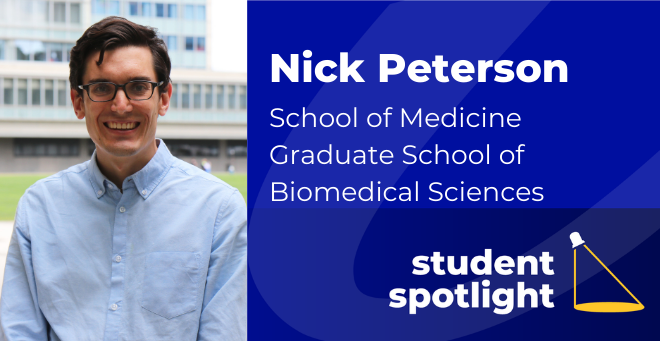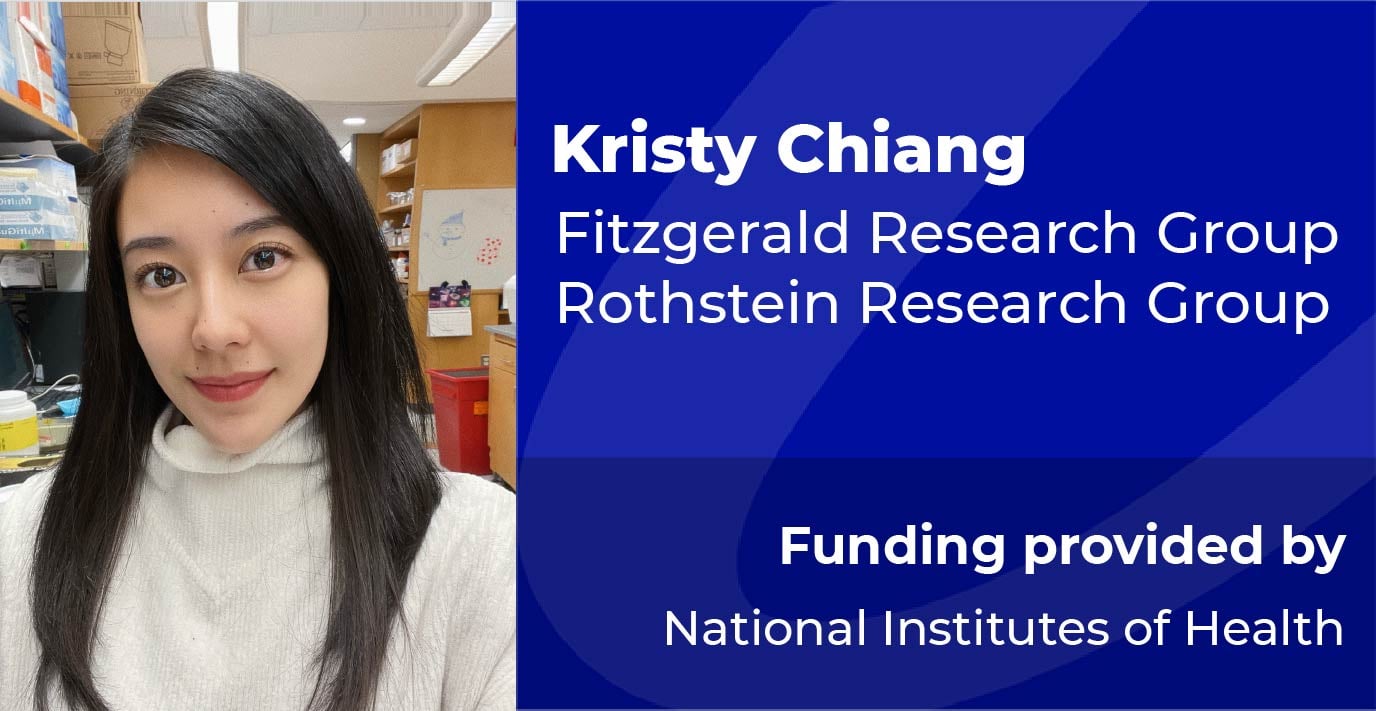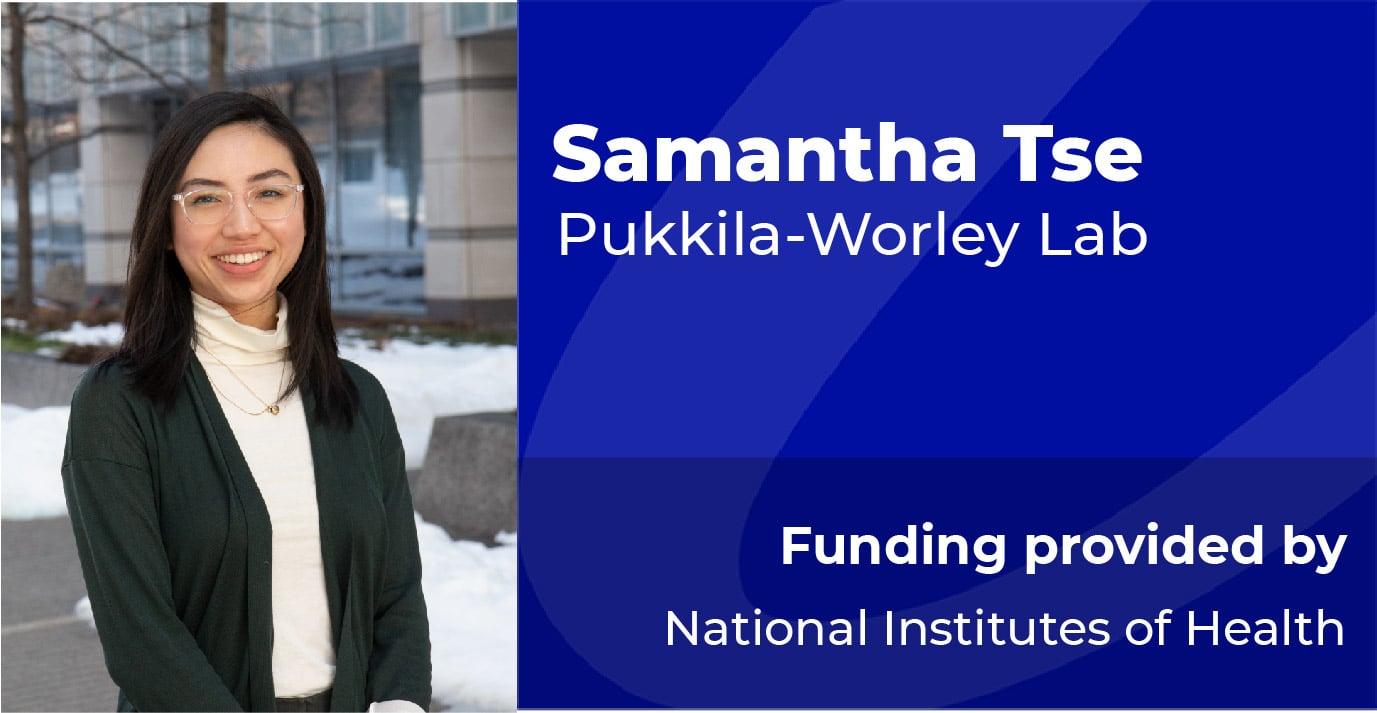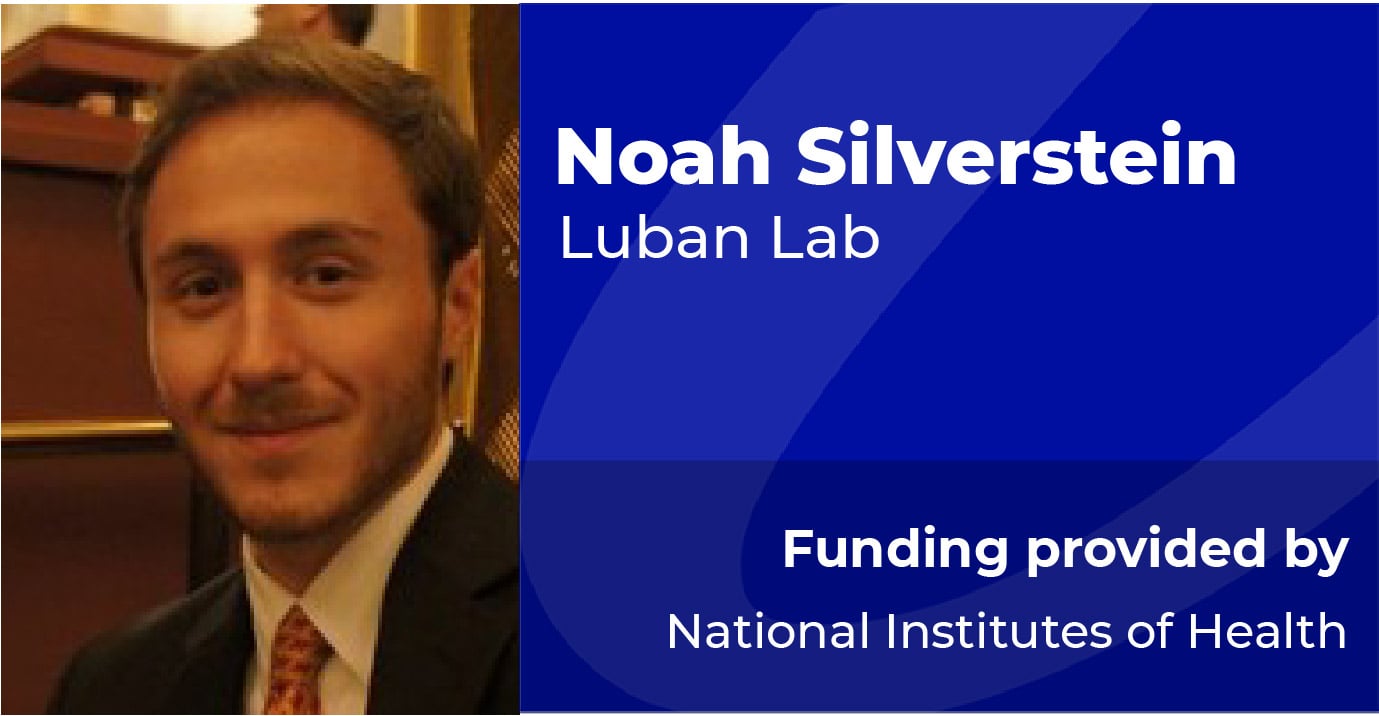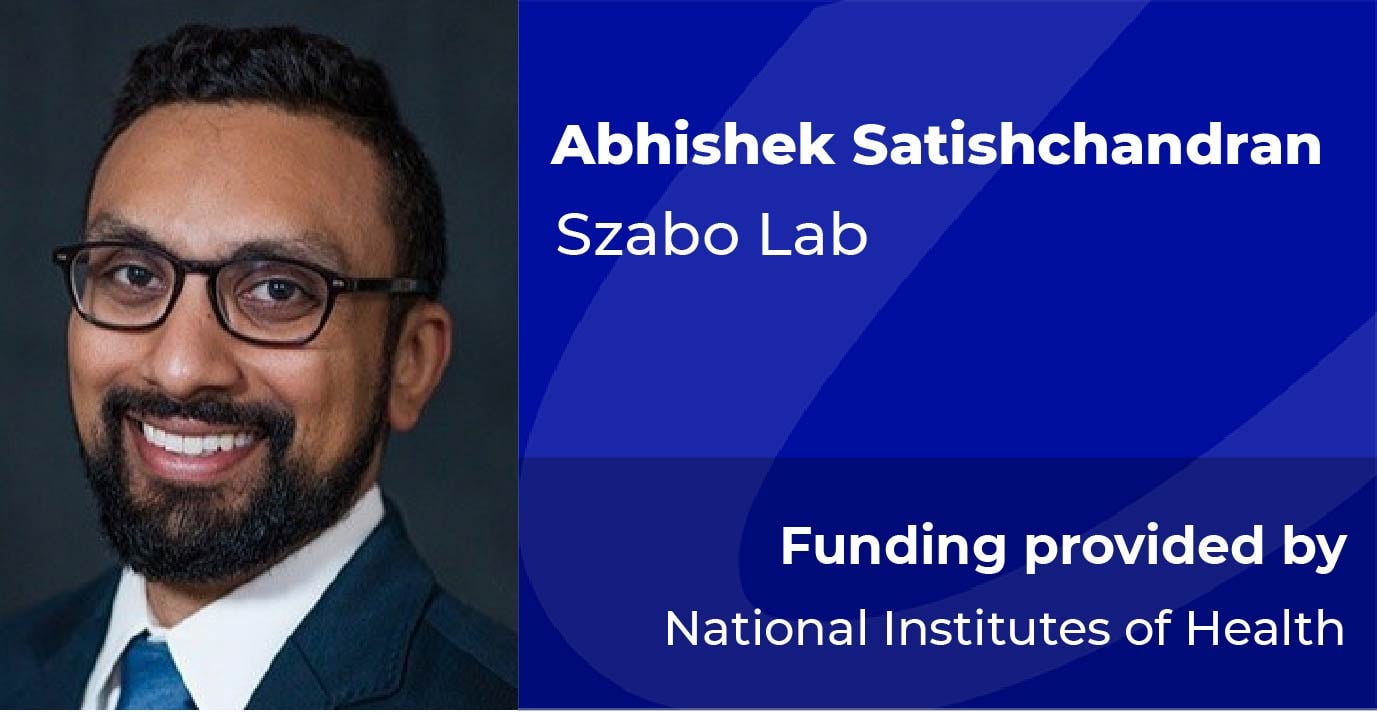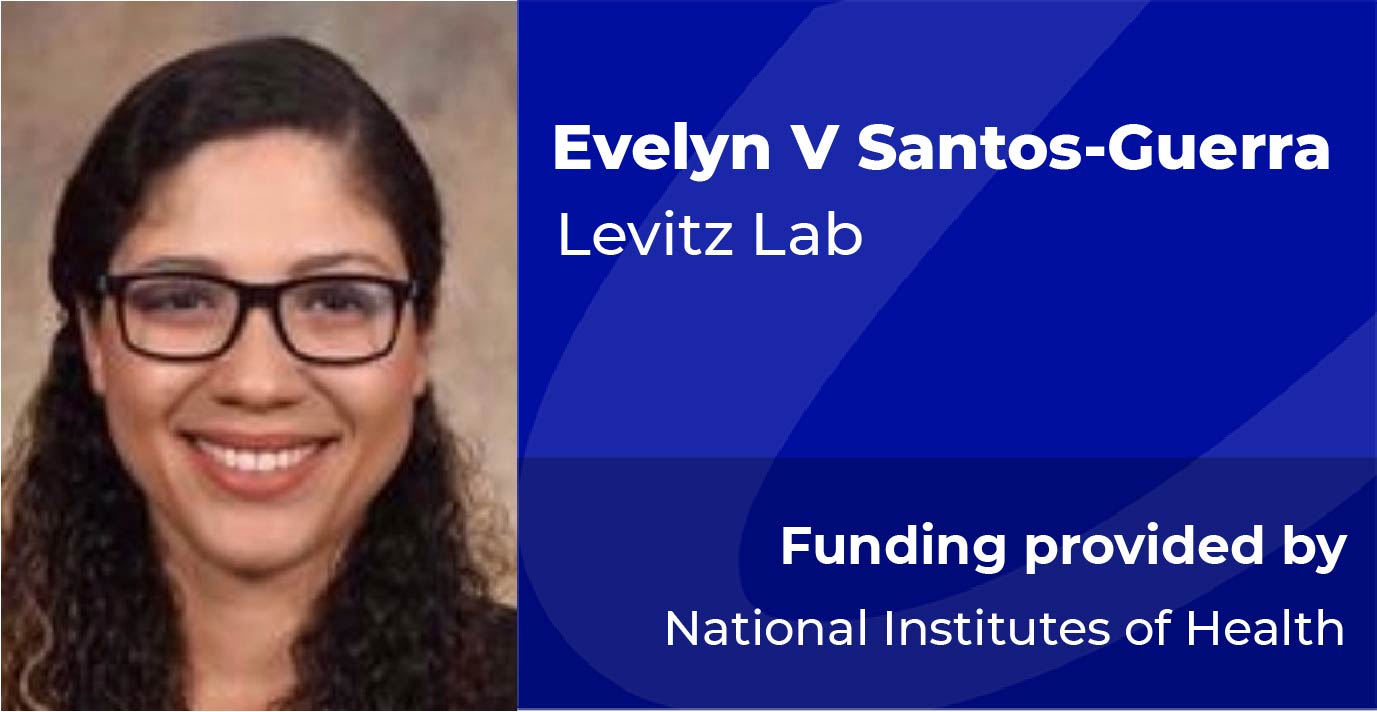Page Menu
Immunology and Microbiology Program
The IMP Program features cutting-edge research in:
- Innate immunity and inflammation
- Host responses to infection and vaccine development
- Fundamental molecular and cellular immunology
- The mechanisms underlying bacterial, parasitological and viral pathogenesis
- Diabetes and transplantation immunology
- Autoimmunity
- Systems biology of host-pathogen dynamics
- Microbiome Sciences
- Molecular mechanism of virus cell entry, assembly, and replication
Immunology, virology, and bacterial pathogenesis are interdisciplinary biomedical fields that employ methods ranging from molecular biology to clinical trials. The Immunology & Microbiology Program (IMP) is administered by an interdepartmental group that includes faculty with diverse research interests, including the molecular and cellular basis of innate immunity, adaptive immunity, molecular mechanisms of viral replication, host-pathogen interactions, and the control of viral, bacterial, and parasitic infections.
The major purpose of the Program is to recruit talented and highly motivated graduate students and postdoctoral fellows and give them first-rate preparation for competitive careers in academic research and industry. Currently there are approximately 35 graduate students in the program, and program faculty are training 80 – 100 postdoctoral fellows.
All BBS Graduate students acquire a broad base of knowledge in immunology, innate immunity, biochemistry, genetics, and cellular and molecular biology through the Scientific Inquiry in Biomedical Research (SIBR) course. IMP students gain a deeper and more specialized training in immunology, virology, and bacteriology through the Spring first-year course, Infection, and Immune Response, which introduces students to the immune system, basic principles of bacteriology and virology, and the interaction of bacteria and viruses with the host. Emphasis is placed on experimental systems and analysis of primary research papers. Further training continues in the fall of the second year with availability of three courses: Advanced Virology, Advanced Molecular and Cellular Immunology, or Advanced Bacterial Pathogenesis. Advanced courses emphasize reading and critical analysis of recent research papers, and which advanced course is taken depends on the student’s area of interest. Additional training in the second year and beyond includes seminars, journal clubs, and tutorials all of which explore the most active areas of current research and support important networking opportunities for IMP students. Laboratory rotations help familiarize students with current research methods and facilitate the selection of an area of interest and a laboratory in which students can pursue their dissertation research.
Admission Requirements Apply Now
REQUIREMENTS FOR SPECIALIZATION
As of September 2025, the requirement for a third elective course is suspended. Students are advised to meet their specific BBS Umbrella Program course requirements. Students may take additional elective courses as they wish.
All Basic Biomedical Science students must complete the core curriculum as well as electives required by their program. IMP students must take BBS 755 - Infection and Immune Response in Spring of the first year, and, in the second year, at least one elective offered by the Immunology and Microbiology program (BBS821 - Molecular and Cellular Immunology, BBS822 - Advanced Animal Virology, or BBS823 - Advanced Bacterial Pathogenesis). Equivalent electives offered by other departments or programs can be substituted with permission. All students, except for those in the final stages of their dissertation research, are required to take BBS 833 - Immunology and Virology Graduate Student Seminar each fall semester, and BBS 834 - Immunology and Microbiology Program Spring Seminar Series, or an equivalent guest scientist seminar program, for two semesters. BBS834 provides a broad perspective on current research topics in the field and offers students unique networking opportunities with national and international leaders.
Specific questions about IMP should be directed to the Program or Course Directors.
View PhD Program Schedule | View Courses
OUR FACULTY
Research areas of our faculty include:
- Viral and bacterial immunology and pathogenesis
- Molecular virology
- Diabetes and transplantation immunology
- Molecular and cellular immunology
- Vaccine development
- Host response against bacterial and viral pathogens
- Innate immune mechanisms
- Systems biology of host-pathogen interactions
- Microbiome sciences
View the affiliated faculty listing for the Immunology and Microbiology Program.
STUDENT EXPERIENCE
IMP hosts an annual retreat featuring our faculty and students presenting their more recent research, as well as an invited keynote speaker. The keynote speakers usually attend for the duration of the retreat and add a great perspective with their Q&A during talks and poster presentations. Recent keynote speakers have included Ramnik Xavier (MGH), Greg Barton (UC Berkeley) and Neal Alto (UTSW). In addition to the retreat, IMP organizes a robust, semester-long seminar program where outside experts in the field visit campus for a day, present their current research and interact with students and faculty. In addition, IMP organizes several social and informational sessions each fall to welcome new students.
Many training-grant eligible IMP students are supported by T32 for one or more years. Training grants include:
STUDENT SPOTLIGHT
Sarah Cleveland, PhD candidate
Immunology and Microbiology Program
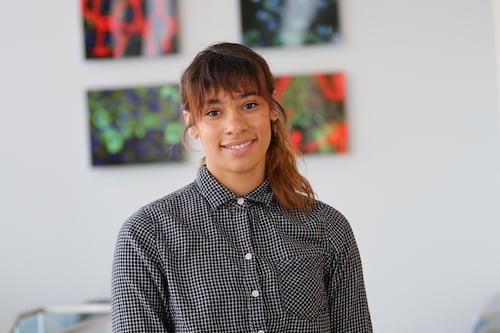
Sarah Cleveland studies T cells in the lab of Eric S. Huseby, PhD, professor of pathology. The lab studies how defects in T cell development can lead to autoimmune disease.
Learn more about Sarah Cleveland
OUR STUDENTS IN THE NEWS
Getting Results…
-
PhD candidate Maureen Hester has experienced UMass Chan as an undergraduate intern, research laboratory technician and as a PhD student. Her research targets Cryptococcus neoformans, a fungal pathogen that can cause pneumonia and progress to meningitis.
Read more
, Graduate School of Biomedical Sciences, Medicine, Faculty, Student, Research, Immunology and Microbiology, Student Spotlight,
-
MD/PhD student Nick Peterson is studying host-pathogen interactions in the Division of Infectious Diseases and Immunology and is co-chair of the MD/PhD Curriculum Committee.
Read more
, Graduate School of Biomedical Sciences, School of Medicine, Medicine, Clinician, Faculty, Student, Immunology and Microbiology, MD/PhD, Student Spotlight,
-
Two MD/PhD students in the lab of Read Pukkila-Worley, MD, have each received Ruth L. Kirschstein National Research Service Awards from the National Institute of Health.
Read more
, Graduate School of Biomedical Sciences, School of Medicine, Medicine, Clinician, Faculty, Student, News, Immunology and Microbiology, MD/PhD, Cancer Biology,
EXTERNAL AWARDS FOR RESEARCH TRAINING (CURRENT)
-
The cyclic GMP-AMP synthase (cGAS)-stimulator of interferon genes (STING) pathway is a cytosolic double- stranded DNA (dsDNA) sensing pathway critical for regulating immune homeostasis. A series of gain-of-function (GOF) mutations result in constitutive activation of STING, causing an autoinflammatory disease called STING- Associated Vasculopathy with Onset in Infancy (SAVI). SAVI patients succumb to treatment resistant inflammatory lung disease and respiratory failure. There is little known about the mechanisms by which inflammation occurs. To address the urgent need to develop safe and effective therapies, we have developed a murine model for the most common STING gain-of-function mutation, STINGV154M/WT (VM). These mice recapitulate the lung inflammation exhibited by human SAVI patients. To identify the specific cell types involved in causing lung inflammation, we developed a novel VM conditional knock-in (CKI), allowing specific targeting of the VM mutation to different cell types. We demonstrated that endothelial cell (EC) STING GOF is sufficient in driving bronchus-associated lymphoid tissue (BALT) formation. However, the mechanism of action remains to be elucidated. Moreover, we have previously described SAVI lung disease as independent of type I interferon (IFN) and IRF3, signaling proteins downstream of STING activation. STING activation leads to downstream signaling of other pathways including NF-κB and autophagy. The signaling mechanism causing lung inflammation is also unknown. Additionally, STING GOF in ECs was insufficient to cause the extent of lung inflammation seen in VM mice, suggesting STING GOF in cells other than ECs is required for lung disease. Upon ubiquitous VM expression, we find evidence of fibroblast activation in the lung tissue. Fibroblastic reticular cells (FRCs) are a subset of fibroblasts that define the function and structure of lymphoid organs such as BALT. In addition to ECs, STING is highly expressed in FRCs, yet the role of STING in FRCs and contributions to lung disease is unknown. Thus, we hypothesize that coordinated interactions between ECs and FRCs exacerbate SAVI lung autoinflammation, which is dependent on NF-κB activation. In this proposal, Aim 1 will investigate how STING GOF mutation in ECs initiates immune cell recruitment. Aim 2 will determine the synergistic effects of STING GOF mutation in ECs and FRCs on lung autoinflammation. We propose to utilize in vivo, ex vivo, and in vitro techniques to test our hypothesis. The studies proposed in this application will provide critical insights that will enable us to design the best therapies. Furthermore, these studies will provide an opportunity to study the impact of STING activation on stromal cell types, an area of research that requires further exploration. Our findings will discern the role of ECs and FRCs in VM lung autoinflammation and will broadly provide insight into stromal cell-driven mechanisms of other lung disorders.
Read more
-
Mycobacterium tuberculosis (Mtb) poses a paradox: despite its seemingly stable genome, it is highly adaptable. Historically, Mtb was viewed as genetically stable, lacking horizontal gene transfer (HGT) and accumulating single-nucleotide variants (SNVs) at a slow rate (~1x10^-7 SNV/site/year). Yet, it adapts to diverse environments, evades immune responses, and withstands antibiotics. The genetic basis for this adaptability remained unclear until recent studies highlighted transient phase variation as a crucial factor. Our previous work identified frequent genetic variation in simple sequence repeats (SSRs) within the Mtb genome (glpK), which is linked to drug resistance and reduced drug efficacy. In addition to this, a phylogenetic analysis of over 31,000 clinical isolates identified 121 SSR sites, including glpK, with a high INDEL rate likely driven by positive selection, with 44 SSRs showing more variation than expected under neutral evolution. In this grant proposal, we plan to leverage a recently generated library of strains representing each of these clinically prevalent mutations to quantify the effect of each on the bacterium’s sensitivity to antibiotics. Understanding these mechanisms comprehensively could reveal new therapeutic strategies targeting antibiotic-resistant subpopulations, potentially improving treatment success and reducing therapy duration.
Read more
EXTERNAL AWARDS FOR RESEARCH TRAINING (PAST)
-
Although commensal and pathogenic bacteria can be recognized by host pattern recognition receptors, intestinal epithelial cells target protective inflammatory responses towards pathogenic organisms through mechanisms that are incompletely understood. Additional mechanisms of pathogen sensing must exist that allow intestinal cells to target inflammatory defenses towards bona fide pathogens during an infection, and not harmless commensal bacteria. Pathogenic bacteria can express virulence determinants. Phenazine toxins are a family of redox active virulence determinants that are produced by a variety of human pathogens, including P. aeruginosa. P. aeruginosa can colonize the intestines of immunocompromised patients and cause fulminant septicemia and subsequent death. The mechanism by which intestinal epithelial cells detect P. aeruginosa, and whether this involves the surveillance of phenazine toxins, is not known. Nuclear hormone receptors (NHR) are transcription factors that program adaptive host responses following recognition of specific exogenous or endogenous ligands. In particular, HNF4⍺ is an NHR expressed in the intestine. In the model organism C. elegans, the HNF4⍺ homolog NHR-86 is required for the transcriptional activation of innate immune effector genes that protect against P. aeruginosa infection. The central hypothesis of this proposal is that intestinal epithelial cells detect infection through the surveillance of pathogen-derived phenazine toxins by NHR-86/ HNF4⍺, which directly activates protective anti-pathogen defenses in the intestinal epithelium. The following key preliminary findings support this central hypothesis: i) P. aeruginosa mutants that cannot make phenazine toxins do not activate C. elegans innate immune defenses; ii) synthetic phenazine toxins can activate immune genes; and iii) induction of immune genes by phenazine toxins is dependent on the expression of NHR-86/ HNF4⍺. In this proposal, Aim 1 will characterize the C. elegans immune response towards bacterial phenazine toxins, and Aim 2 will define the role of intestinal NHR-86/HNF4⍺ in detecting P. aeruginosa infection in C. elegans. The research proposed here will define a new concept of immune activation in intestinal epithelial cells and will also attribute a novel role for NHRs in pathogen sensing in the intestine. Insights from these findings may identify unexplored approaches for the development of anti-inflammatory and anti-infective therapies.
Read more
-
Epigenetic inheritance is a process by which parental exposure to environmental factors influences offspring phenotype. This field of investigation has wide-ranging implications for human health. Epidemiologic studies have shown that exposure of parents or grandparents to starvation, trauma, cigarette smoke, or other stressors alters offspring susceptibility to cardiovascular disease, obesity, lung disease, or other conditions. Research with animal models has mirrored these findings and offers tools for disentangling the underlying mechanisms of epigenetic information transfer from parent to offspring. Such research has been greatly enabled by recent technological advances, including next generation sequencing and fundamental discoveries like microRNA biology. In vitro fertilization experiments demonstrate that sperm carry sufficient information to propagate epigenetic phenotypes across generations, and research with these paternal epigenetic inheritance models has identified sperm-associated small non-coding RNAs (sncRNA) as carriers of information from father to offspring. I have established an epigenetic inheritance model in which paternal influenza infection, with virus elimination and disease recovery prior to mating, results in an adaptive attenuation of disease severity (significantly decreased weight loss) in response to influenza infection in offspring, as well as a maladaptive altered glucose metabolism. While these phenotypes are robust, the underlying mechanism of information transfer to offspring remains to be determined. In preliminary experiments to address the mechanism I have found that influenza infection alters sperm-associated sncRNA. This proposal addresses the hypothesis that influenza virus-induced changes in sperm-associated sncRNA populations alter embryo development resulting in offspring metabolic and immune phenotypes. Aim 1 elucidates the underlying epigenetic inheritance mechanism through kinetic analysis of sperm sncRNA and early embryo development. Aim 2 determines the specificity of the offspring epigenetic inheritance phenotype to the paternal stressor both directly by challenging with a non-cross reactive strain of influenza virus, and indirectly by further metabolic phenotyping to determine if paternal influenza infection alters glucose homeostasis and liver gene expression in the offspring in ways similar to other paternal stressors. This research will provide valuable insight into the mechanism underlying epigenetic inheritance, and do so within the context of a novel epigenetic inheritance model with direct relevance to human health.
Read more
-
The mechanisms of pathogen sensing and immune effector induction in intestinal epithelial cells are not completely understood. Disruption in the mechanisms of pathogen sensing and immune homeostasis in intestinal epithelial cells can lead to dysbiosis and inflammation, as well as susceptibility to bacterial infection. Key insights into intestinal epithelial cell immunity and host-pathogen interactions have been made using the nematode C. elegans. Nematodes mount innate immune defenses against bacterial infection via conserved immune pathways, but the mechanisms of pathogen detection are unknown in this organism. In nematodes, the family of nuclear hormone receptors (NHRs) has dramatically expanded compared to other metazoans. NHRs are ligand-gated transcription factors that sense endogenous and exogenous signals to induce adaptive transcriptional responses. The C. elegans genome encodes 274 NHRs, of which 260 are homologs of human HNF4α. HNF4α is a key NHR involved in inflammatory bowel disease, though the mechanism through which HNF4α mediates inflammatory bowel disease in humans is unknown. The central hypothesis of this proposal is that C. elegans HNF4α homologs are an ancient family of pathogen sensors whose evolutionary expansion in C. elegans was driven by their function in detecting diverse pathogens. The following key findings support this hypothesis: (i) The nuclear hormone receptor, NHR-86/HNF4α, senses the cellular environment and activates C. elegans intestinal immune defenses; (ii) NHR-86/HNF4α is required for pathogen resistance and immune response towards the gram positive human pathogen E. faecalis; and (iii) A different C. elegans HNF4α homolog is required for pathogen defense and immune effector regulation against the gram negative pathogen P. aeruginosa. In this proposal, Aim 1 will define the role of C. elegans NHR-86/HNF4α in pathogen detection and immune effector induction during E. faecalis infection using a combination of transcriptomics, ChIP- sequencing, tissue-specific rescue and genetic epistasis. Aim 2 will characterize the function of a separate C. elegans HNF4α homolog in pathogen sensing during P. aeruginosa infection. The approach includes: transcriptomics, global NHR binding site identification, tissue specific rescue, and P. aeruginosa genetics. Collectively, these studies will characterize a fundamentally new paradigm of immune activation, which will solve a major conundrum of how pathogens are sensed in C. elegans. These findings will also establish NHRs as evolutionarily ancient pathogen sensors. Ultimately, the expectation is that detailed dissection of this mechanism will shed light on the role of HNF4α in mammalian pathogen sensing and inflammatory bowel disease.
Read more
-
Pulmonary lung fibrosis is a poorly understood process that can arise in pediatric patients with gain-of-function mutations that disrupt the regulation of the cytosolic double stranded DNA sensing pathway, cGAS-STING. This project will define the role that B cells play in mediating lung fibrosis in a mouse model of STING gain-of- function autoinflammation that recapitulates a human disease known as STING Associated Vasculopathy with onset in Infancy (SAVI). The expectation is that the results of these studies will offer insights into the mechanisms by which B cell contribute to fibrotic lung disease and assess, using murine models, whether targeting B cells is a valid strategy for prophylactically treating lung fibrosis.
Read more
-
“Alcohol abuse has been attributed to 3.2% of the world's disease burden. Chronic abuse manifests as reversible steatosis, steatohepatitis and/or irreversible cirrhosis. Regardless abstinence, 5-15% of patients with steatohepatitis still progress to cirrhosis and hepatocellular carcinoma (HCC). Studies have demonstrated the role of miR-122 as a mediator of hepatic metabolism, cellular differentiation and the development of HCC. Our laboratory has shown decreased miR-122 in a four-week chronic-alcohol mouse model. The role of miR-122 in ALD is unknown. Bioinformatic miRNA target prediction tools suggest Hypoxia-Inducible Factor 1-� (HIF1�) is a primary target of miR-122. HIF1� is critical to the progression of ALD. Specific Aim 1 will study the role of miR-122 in the pathogenesis of chronic alcohol-induced hepatitis. C57Bl/6 mice will be transfected using a hepatocyte-tropic adeno-associated virus serotype 8 (rAAV) vector to either knockdown or overexpress miR-122 via tough decoy (TuD) or the miR-122 respectively. Mice will be maintained on Lieber-DeCarli diet for 28 days. On day 28 mice will be withdrawn from alcohol and given 150- mg/kg acetaminophen (APAP). Mice will be sacrificed on day 30 to assess regeneration. Livers sections will be analyzed histologically for morphological changes, lipid accumulation, and regeneration. In addition, we will determine the impact on miR-122 modulation on hepatic inflammation and differentiation through expression analysis of inflammatory cytokines and cell cycle regulators associated with ALD. MiR-122 has been correlated with a network of Liver Enriched Transcription Factors (LETFs). Collectively, these LETFs function as master regulators of hepatic function. HNF6�, specifically, has been shown to function in a positive feedback loop with miR-122. Specific Aim 2 will examine the effect of miR-122, its overexpression and knockdown, on HNF6� in a chronic-alcohol model. We will also examine if miR-122 can reduce ALD through enhancement of HNF6� and the LETF network. The rAAV8 vector stated above will deliver anti- HNF6� shRNA or rHNF6 in vivo. The mice will be treated and assayed as described above. During the first year of this fellowship we aim to examine the effect of miR-122 on the severity of ALD development using gene therapy. The remaining two years of my Ph.D. (funding yrs 2 & 3) will be spent studying the effect miR-122 and HNF6� regulation of the LETF network in the progression of ALD. During years 4 and 5 of funding I shall complete my M.D. training while finalizing any work required for publication. Collectively, we propose to examine two potential avenues by which miR-122 may serve as a potential therapeutic modality. First, is the development of steatosis though inhibition of HIF1� and secondly, is the regeneration after alcohol and APAP-induced liver injury.”
Read more
-
The respiratory mucosa employs the innate and adaptive immune system to protect normal respiratory function from invading organisms. However, when there is a defect in one of these defenses the host becomes vulnerable to Aspergillus fumigatus (Af). This ubiquitous fungus enters the airways as a spore, or resting conidium but is generally cleared by intact respiratory defenses. However, when individuals are immunocompromised, Af conidia are more likely to germinate and form filamentous structures called hyphae. As this morphotype, Af can become invasive particularly in persons with low neutrophil counts. An estimated 200,000 people are diagnosed with invasive aspergillosis annually worldwide, and up to 90% die from the infection. Af can also colonize the airways of those who suffer from asthma or cystic fibrosis causing allergic bronchopulmonary aspergillosis (ABPA), which affects over 4 million people annually worldwide. Studies proposed here seek to further understand the intact innate immune response to Af conidia, particularly the involvement of interleukin-23 (IL-23) and interleukin-17 (IL-17). A better understanding of this response may uncover nuances associated with the host defects that predispose to infection with Af, as well as potentially inform rational vaccine design and immunotherapies against Af. Af conidia elicit IL-23 and IL-17 production from the host airways within the first 24 hours of infection. These cytokines are known to be important for the adaptive TH17 response. However their role in innate immunity against Af is largely unknown. IL-23 has been shown to augment IL-17 production, and in turn IL-17 elicits neutrophil recruitment. The relationship between IL-23 and IL-17 is referred to as the IL-23/IL-17 axis and this proposal aims to systematically characterize each portion of this axis in the innate response against Af conidia, and test whether this response is required for protection against this mycosis. In order to characterize the temporal production pattern of IL-23, we will measure levels of this cytokine at regular intervals in the fist 72 hours of infection by ELISA. From a preliminary screen, we have uncovered candidate cell types that may be involved in the production of IL-23. We aim to confirm these sources by in vivo and ex vivo intracellular cytokine staining. To test whether IL-23 production is protective against mortality in Af infection, the survival rates of wild-type (WT) mice will be compared to a functional IL-23 knock-out strain (IL-23p19-/-). Finally, we propose to create mixed bone marrow chimeras to test whether any specific cellular source of IL-23 is required for protection against Af (Specific Aim 1). The temporal pattern of production for IL-17 and its source will also be characterized in the first 72 hours of infection with Af using methods described above. To test whether IL-23 augments IL-17 production innately in response to Af, IL-17 levels will be assessed in IL-23p19-/- mice and WT mice. In addition, we have evidence that IL-23 and IL-17A are co-produced by one innate cell type in response Af, we propose to test and dissect any potential autocrine mechanisms in this cell type. Finally, the role of IL-17 in protection against f infection will also be tested by monitoring the survival of IL-17RA-/- mice and WT mice (Specific Aim 2). Because many at risk for IA are transplant patients who are iatrogenically immunosuppressed, knowledge of the factors leading to protection against aspergillosis could also inform development of targeted immunosuppressive agents that keep defenses against opportunistic infections intact.
Read more
POST-DEGREE CAREERS
IMP graduates pursue both academic and industry career tracks. In fact, one recent graduate has pursued both, with an academic postdoc, supported by an EMO Fellowship, at the CMM in Vienna and then founded a biotech startup, Allcyte, where he is currently serving as CSO. Many other graduates take positions directly after completing their degree in the local biopharma industry where expertise in immunology is in high demand. For example, some of our recent graduate have joined Amgen, Pfizer, Sanofi, AstraZeneca, Moderna, and Genetech. Others have pursued careers in intellectual property and the law, for example at Lathrop GPM. Another recent graduate joined the Massachusetts Department of Public Health where he manages a team providing surveillance for insect vectored virus.
In 1978, two years after the opening of UMass Medical School, now UMass Chan Medical School, a group of immunologists formed an Interdepartmental Immunology Committee, whose goal was to foster immunology research and training. A top priority was to establish a graduate program, and the institution gained PhD degree-granting authority in the context of a “Program in Medical Sciences" in 1979. So as not to duplicate existing programs in Amherst, the graduate students on the Medical School campus participated in a more medically oriented curriculum, taking courses with medical students and earning a PhD in Medical Sciences rather than in a specific discipline. Soon it became clear that students needed sophisticated discipline-oriented course work and training, and the faculty began to offer core courses and advanced courses requisite for effective graduate student training.
The first two PhDs were awarded in 1984, both with specialties in immunology. In 1986, a formal, independent Graduate School was approved and is now known as the Morningside Graduate School of Biomedical Sciences. At that same time, reflecting the research interests of many of the faculty and the ongoing AIDS epidemic, there was a merger of disciplines to form the interdepartmental Immunology and Virology Program. The birth of these disciplines had a common origin with the Jenner smallpox vaccine, and the two disciplines had been evolving in parallel since that time. The immune system exists to fight pathogens, and much of the viral genetic machinery is used to avoid or co-exist with adaptive and innate immune system functions. It thus made little sense to be trained in one of those disciplines while remaining ignorant of the other. More recently, UMass Chan has enriched its faculty with researchers studying innate immunity, autoimmunity, microbial immunology and pathogenesis. As a consequence, the Immunology and Virology and Molecular Genetics and Microbiology graduate programs merged to become the Immunology and Microbiology Program (IMP).



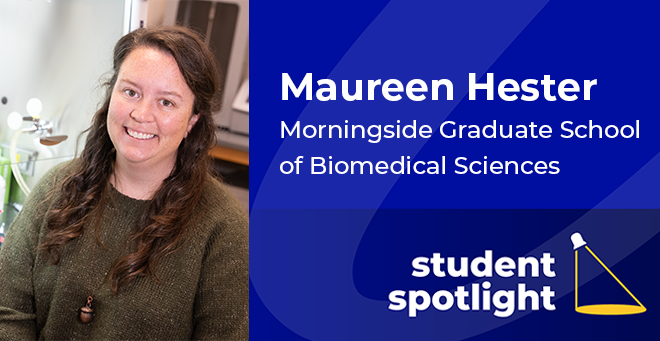 Read more
Read more